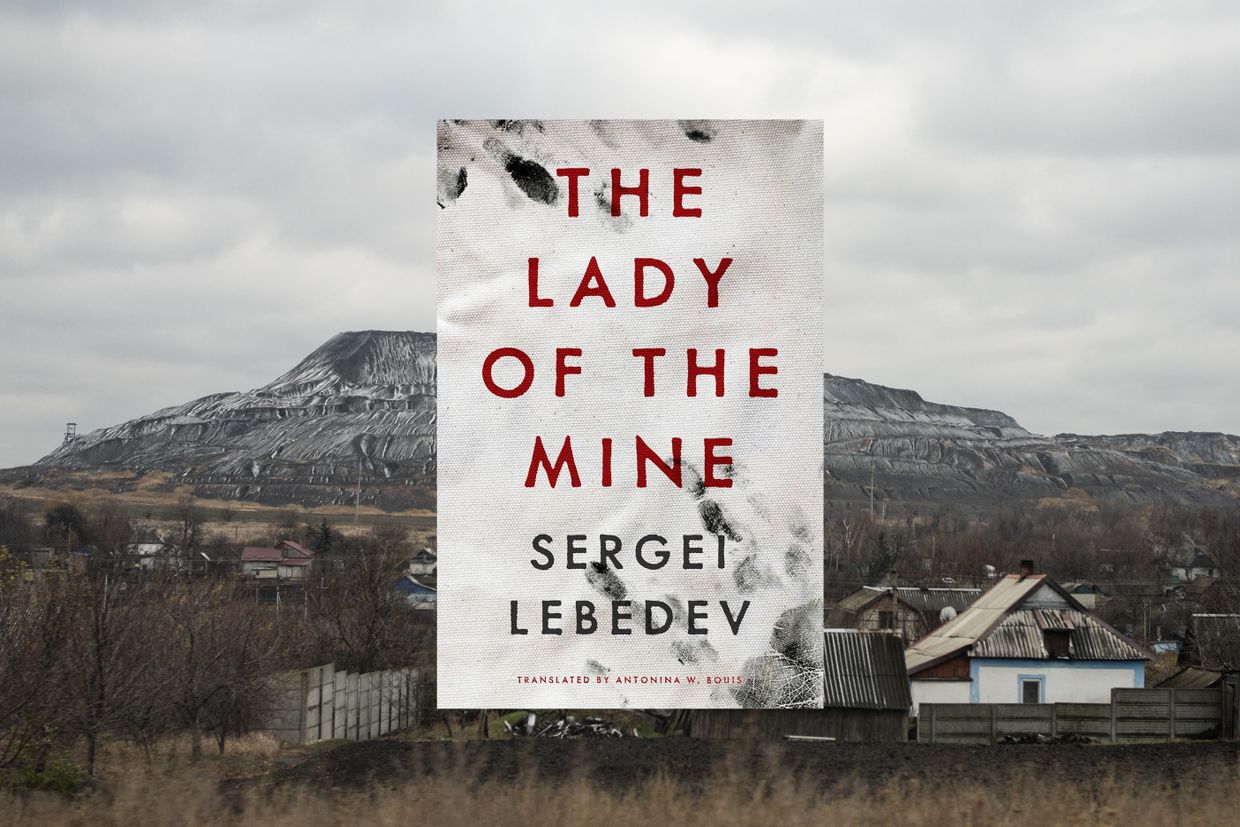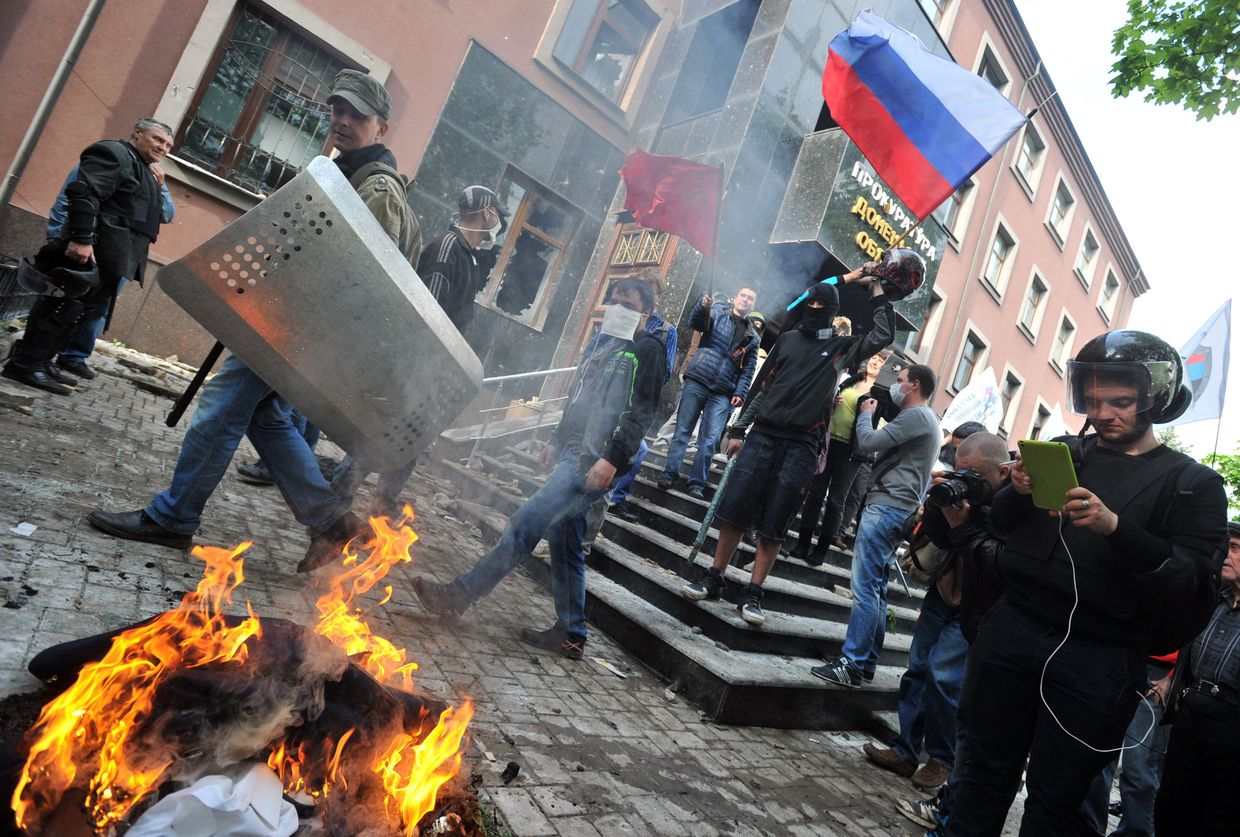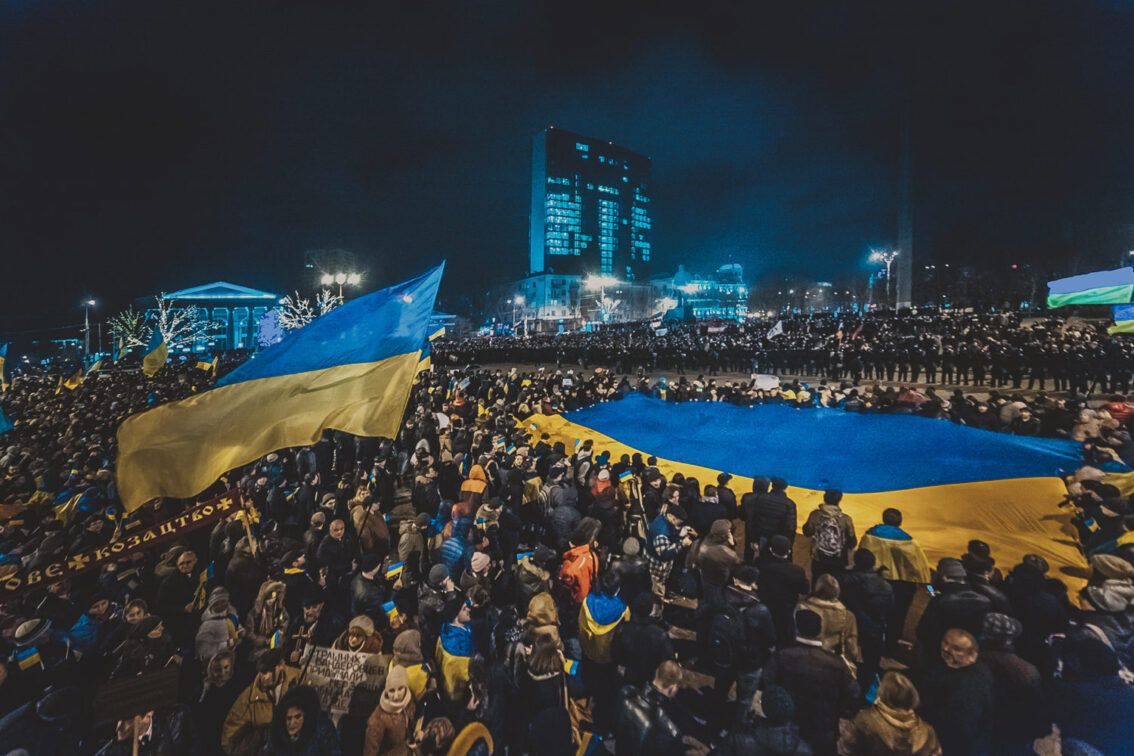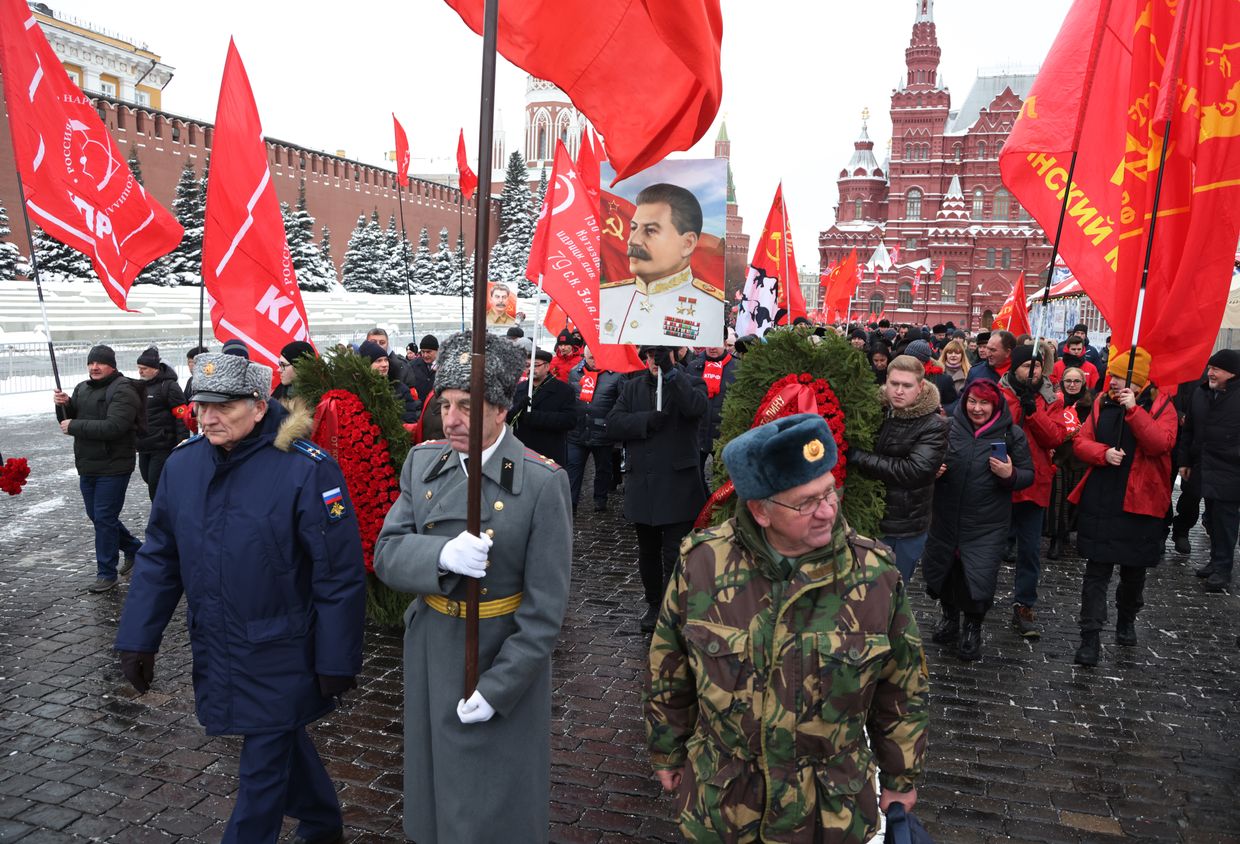
Over the previous three years of Russia's full-scale warfare in opposition to Ukraine, the very point out of a Russian novel or movie set in Ukraine has understandably evoked trepidation amongst Ukrainians and Ukraine's supporters.
Regardless of Russia’s relentless missile and drone assaults on Ukrainian cities and the staggering variety of documented warfare crimes dedicated by Russian troops on Ukrainian soil, a variety of anti-war Russian artists have used their worldwide platforms to not confront this harsh actuality however to defend Russian literature from so-called "cancellation" or to even attempt to humanize the Russian troopers waging warfare in Ukraine. By doing so, they usually seem indifferent from — and even complicit in — the struggling dedicated of their nation’s title.
Exiled Russian writer Sergei Lebedev’s newest novel, “The Woman of the Mine,” set in opposition to the backdrop of Russia’s 2014 invasion of Ukraine's Donetsk and Luhansk oblasts, gives a glimpse of what it would seem like if the Russian opposition had been to truly confront their nation's imperialist legacy. The novel underscores the truth that any significant undertaking of decolonizing Russian tradition should start from inside — particularly, among the many nation’s personal anti-war intellectuals. Absent this inside reckoning, the rhetoric of decolonization dangers remaining little greater than a gesture of wishful considering.
Earlier than he launched into his literary profession, Lebedev labored on geological expeditions in Russia’s far North, the place among the Soviet Union’s most brutal gulags had been positioned, and he additionally labored as an opposition journalist. Having moved to Germany six years in the past for skilled causes, he stays outdoors of Russia as a result of his vocal anti-war stance.
In "The Woman of the Mine," jap Ukraine at first of the warfare in 2014 serves as a kind of palimpsest the place warfare, historical past, and reminiscence collide with the ghosts of Russian imperial ambition. Lebedev makes an attempt an exorcism of Russia’s colonial myths, notably the Soviet "miner’s delusion" of Donbas which has lengthy been manipulated by Russian state-controlled propaganda to "justify" their nation's aggression past Russia’s borders.
Stripping away illusions of commercial glory, Lebedev reveals the Soviet narrative about Donbas to be not some fabled land however a relentless vortex, unyielding and insatiable. Because the novel unfolds, it turns into clear that the highway to conquest solely leads a rustic into the abyss.
 The Kyiv IndependentKate Tsurkan
The Kyiv IndependentKate Tsurkan
On the novel’s heart is Zhanna, who abandons her college research in Kharkiv to look after her dying mom Marianna. The most cancers that consumes Marianna’s physique turns into synonymous with the Russian propaganda she watches on tv — as the previous ravages her physique, the latter erodes her thoughts.
Zhanna is horrified by the Russian propagandists on her mom's tv shouting a few so-called "Banderite coup" in Kyiv — their effort to discredit the Revolution of Dignity — however “her mom appeared to know, and, being on the identical wavelength of insanity, listened with darkish and merciless consideration.” The professional-Russian speaking factors on the tv display screen are “pouring into her mom’s consciousness, destroying the standard connections of issues and phenomena and constructing new ones: phantasmagoric and sinister.”
The "phantasmagoric and sinister" consists of the return of her neighbor Valentine, often called “Valet,” who was exiled to Russia years in the past. The Russian navy sends Valet and a handful of others to his hometown to assist orchestrate a staged rebellion, fabricating the phantasm pushed by pro-Russian speaking heads that the folks of Donetsk Oblast genuinely assist Russia’s annexation. His cowl story is straightforward: he has come again to go to his mom.

But Valet’s return can also be private. Years earlier, he was compelled to depart Ukraine for his kinfolk in Russia as a result of Marianna, seen by the townspeople because the mine’s enigmatic guardian, acknowledged him as a assassin, his guilt betrayed by specks of blood on his garments and a gold tooth in his pocket that would have solely come from the city's mine. Now, again in Donetsk Oblast, Valet sees a chance for revenge by preying on Marianna’s younger and susceptible daughter.
The city's mine stands as each a grave and a silent witness, its buried secrets and techniques forming the novel’s darkish undercurrent. In keeping with native lore, the sealed-off mine shaft holds the stays of Jews executed by the Nazis throughout World Warfare II. But, via the voice of the Engineer — the long-dead architect of the mine, roused from loss of life by Russia’s full-scale warfare in opposition to Ukraine — one other darkish fact emerges: the Soviets by no means exhumed the our bodies as a result of the truth that beneath them lie the remnants of older atrocities, proof of Russian crimes lengthy hid.
“Underneath us lie Crimson Military prisoners shot by the Germans. Beneath them, folks shot by the Bolsheviks when the Crimson Military was retreating, and the prisoners of Soviet prisons. Underneath them, folks executed within the Civil Warfare by advancing and retreating troops, Whites, Reds, Greens, random folks, hostages. Under them, the murdered strikers of the primary revolution, in 1905. Stratigraphy. The tiers. Unity in fossilization,” the Engineer explains.
“(The Russian occupants) hadn’t realized it but, however that they had changed into these whom they thought of their worst enemy, whom that they had defeated and crushed: the Nazis.”
Certain collectively in loss of life, the our bodies within the mine embody “the mute horror of the European unconscious.” Given the shortage of oxygen within the mine shaft, they haven’t absolutely decomposed, leaving them “imprisoned within the embers, within the stays of a bygone age: ashes encased in ashes.”
Some guide critiques have lowered Lebedev’s novel to its perceived inaction, claiming “nothing actually occurs,” as if warfare is barely what’s proven in movies and never slow-burning terror. Others fixate on its themes of loss of life and decay as “sometimes Russian.” In these critiques, the importance of the novel being set in Ukraine's East at first of the warfare in 2014 is totally neglected. A cautious studying of the novel rejects such an oversimplification — it’s not a regurgitation of outdated, cliched literary tropes however a quiet reckoning with the very concepts which have sustained longstanding stereotypes about Russian literature.
A number of scenes within the novel are crafted to point out that the autumn of Donetsk was not as a result of “pro-Russian separatists” rising up after the Revolution of Dignity of 2014 in Kyiv. In a single occasion, Valet observes that “when you seemed on the city, walked the streets, went into the yards, listened to what folks stated, you’d by no means imagine they had been critically considering of separating from Ukraine.”

The brokers of Russian occupation are all depicted as predators in a method or one other. Valet, for example, is pushed by his perverse need to sexually corrupt Zhanna, even going as far as to masturbate outdoors her window as he displays on how precisely to reap the benefits of her vulnerability following her mom’s deadly sickness.
Lebedev’s novel gives no try to forged Russian forces in a sympathetic gentle . They don’t seem to be depicted as mere pawns in Russian President Vladimir Putin’s political machinations however as absolutely conscious perpetrators, intent on committing horrific warfare crimes within the title of Russia. The illustration of Russian tradition within the novel is lowered to situations like seedy golf equipment the place Russian chanson music — a musical style that romanticizes criminality — blares within the background, additional underscoring the ethical decay that accompanies up to date Russia and Russian forces’ presence in Ukraine.
Because the Engineer says from past the grave, “(The Russian occupants) hadn’t realized it but, however that they had changed into these whom they thought of their worst enemy, whom that they had defeated and crushed: the Nazis.”
“Sure, they’ve energy. However it’s the energy of the scum, the ability of the underside that has risen and risen. The ability of a lowlife who out of the blue has been given the ability to stand up and rule. And that energy is doomed to denounce itself.”
Amongst his Russian exile literary friends, Lebedev is arguably one of the best suited to undertake writing such a novel. His physique of labor has lengthy been devoted to exploring Russia’s previous and the way its failure to meaningfully grapple with its darkest moments in historical past has formed its current. “The Woman of the Mine” continues this engagement with historical past, exposing the crimes of empire and the system that allows them. There aren’t any ruminations on the Russian soul, no appeals to nineteenth century Russian poet Alexander Pushkin for saving — all the things is completely clear.
But, the emergence of substantive anti-war literature from Russia's up to date literary scene stays, for the foreseeable future, a distant prospect — Lebedev’s reception has arguably been stronger amongst worldwide audiences. Whereas his novel stands as a hanging exemplar of literary dissent, additionally it is essential to acknowledge that the broader endeavor of decolonizing Russian tradition can’t be circumscribed to representations of its warfare of aggression in opposition to Ukraine alone.
For the Russian exile neighborhood to write down and communicate concerning the horrors of this warfare with readability, honesty, and braveness is not only an mental responsibility however an existential one — a step towards understanding not solely the monstrosity Russia has change into but in addition the trail it didn’t pursue. Or, as Lebedev himself put it in an interview for the Monetary Instances: “If Russia is to have any future, it must change into one other nation.”
Word from the writer:
Hello, that is Kate Tsurkan, thanks for studying this text. There’s an ever-increasing quantity of books about or associated to Ukraine, Russia, and Russia's ongoing warfare of aggression in opposition to Ukraine out there to English-language readers, and I hope my suggestions show helpful in relation to your subsequent journey to the bookstore. It you want studying about this kind of factor, please consider supporting The Kyiv Independent.
 The Kyiv IndependentDinara Khalilova
The Kyiv IndependentDinara Khalilova